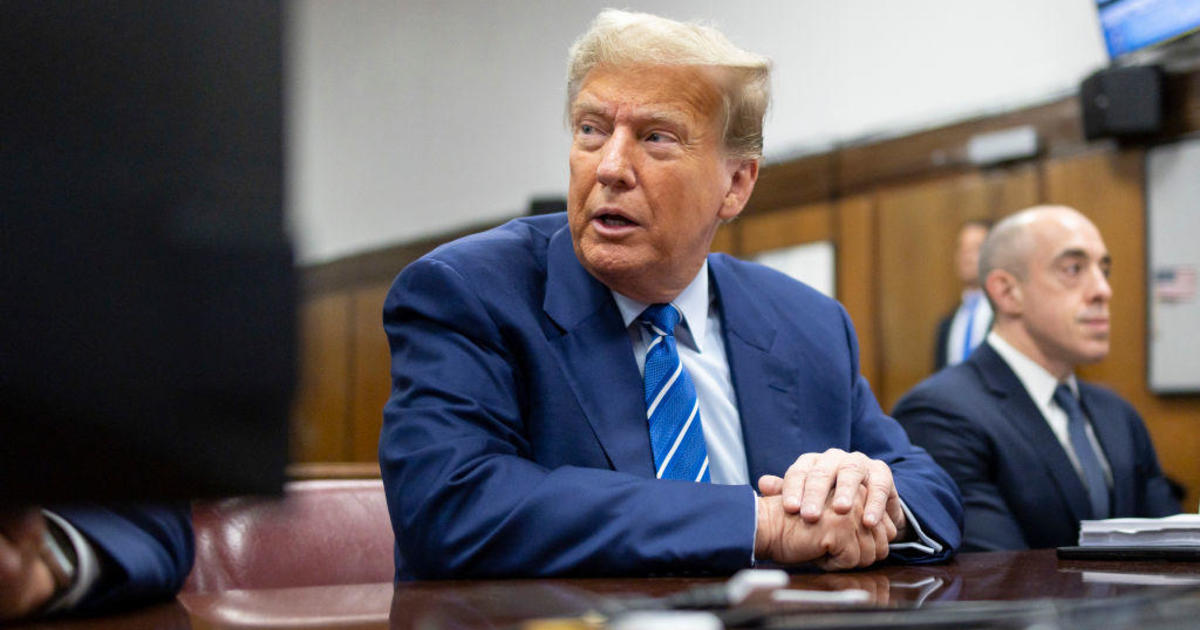Trump administration to continue rejecting new DACA applicants and limit existing protections
The Trump administration announced Tuesday it will continue to reject initial Deferred Action for Childhood Arrivals (DACA) applications from immigrants who never obtained the protection from deportation and also limit the renewals for more than 640,000 so-called "Dreamers" enrolled in the program.
Immigration officers will "reject without prejudice" DACA petitions from those not enrolled in the program, dashing the hopes of hundreds of thousands of potential new applicants, including more than 66,000 immigrant teens who turned 15 years of age after September 2017. Those whose applications are rejected without prejudice may be able to apply for DACA in the future if the program is opened to new beneficiaries
Under the new guidelines, current DACA recipients will only be eligible for one-year extensions, rather than the two-year protections that have been in place since 2012.
The move is a stopgap action while the administration undertakes a "comprehensive review" of the Obama-era program and the justifications offered in 2017 for dismantling it, according to a senior administration official who requested anonymity. Officials intend to use the review to formulate a new decision on the program's fate in the future.
Erika Andiola, a DACA recipient and the chief advocacy officer at the Refugee and Immigrant Center for Education Legal Services (RAICES), called Tuesday's decision "disheartening," highlighting the impact it will have on immigrant youths who were hoping to apply for DACA for the first time and had contacted her group for assistance.
"Yes, this is a way for people to have work permits. It's a benefit in general for people to be able to work," Andiola told CBS News. "But it's even more than that. It's also the ability to feel safer and to be able to live without the fear of having a police officer or an immigration agent pick you up and deport you."
It is unclear whether Tuesday's announcement complies with recent orders from the Supreme Court and lower courts that prevented the administration from immediately ending DACA — an initiative that has been broadly popular amid the nation's contentious debate around immigration.
In a 5-4 opinion authored by Chief Justice John Roberts, the Supreme Court ruled in June that the Trump administration violated federal administrative law in its termination of DACA, setting aside the 2017 memo that would've ended the program. The majority's opinion did not address the program's legality, nor did it preclude the Trump administration from crafting a new rationale for ending it.
More recently, a federal judge in Maryland ordered the U.S. Department of Homeland Security, which administers DACA, to fully restore the program to way it operated before the Trump administration moved to terminate it in the fall of 2017.
In a memo published Tuesday, Chad Wolf, the top official at the Department of Homeland Security, said he was rescinding directives issued by his predecessors that would have ended DACA. Wolf said he was also making immediate changes to the program — including the limited extensions — to "mitigate my enforcement policy concerns while I conduct a full and careful consideration of a full rescission."
Wolf said he has "serious doubts" about the legality of offering a large group of undocumented immigrants protections from deportation, suggesting that Congress should be responsible for adjusting their legal status. He also expressed concern about sending "mixed messages" on the enforcement of immigration laws that could encourage unauthorized migration. While he conceded that new border-crossers are not eligible for DACA, Wolf said that keeping the program in place could convey "a potential for similar future policies."
In justifying the decisions to bar initial applications, Wolf said immigrants who were not previously enrolled in DACA lacked the "reliance interests" of current recipients, whom he recognized had formed their lives around the protections, contributed to the U.S. economy and used the program to help their families, schools and employers. While acknowledging that requiring current beneficiaries to apply for renewals every year would also require them to pay more in application fees, Wolf said the shortened period of protection would lessen "the lasting effects of the DACA policy if I ultimately decide to rescind it."
Wolf also announced his department will continue to reject requests from DACA recipients for "advance parole" — which allows them to travel outside the country and return — absent exceptional circumstances.
The administration revealed on Tuesday that Attorney General William Barr had, in late June, withdrawn a letter by his predecessor, Jeff Sessions, that raised doubts about the legality of DACA. Barr also withdrew a 2014 Obama-era Justice Department legal opinion that concluded the program was a lawful exercise of executive authority, according to a letter addressed to Wolf.
"I wish to wipe the slate clean to make clear beyond doubt that you are free to exercise your own independent judgment in considering the full range of legal and policy issues implicated by a potential rescission or modification of DACA, as contemplated by the Supreme Court," Barr wrote in his letter, dated June 30.
Asked how the continued rejection of initial applications for DACA conforms with judicial orders, a senior administration official said the Department of Homeland Security would've only been bound to accept them had Wolf not issued a new memo on Tuesday. The official said the memo did not create a new program, but rather serves as an "intervening action" while the administration conducts its review.
Marielena Hincapié, the executive director of the National Immigration Law Center, noted that her group, one of several that challenged DACA's termination in court, is exploring "all options" to respond to Tuesday's announcement, which she said ensures the issue will be a central one during this year's presidential election.
"Trump's announcement really lays the groundwork to kill the DACA program and makes it clear that DACA is now on the ballot in November," Hincapié told CBS News.
The U.S. government first agreed to shield undocumented immigrants who came to the U.S as children from deportation in 2012, when President Obama announced the Department of Homeland Security would start accepting and processing applications for these temporary protections from young immigrants who met certain requirements.
The prerequisites included having no serious criminal convictions, having arrived in the U.S before they were 16, having lived in the country since at least 2007 and earning an American high school diploma, a GED or serving honorably in the military. DACA recipients also receive temporary, renewable work permits.
Fin Gomez contributed reporting.



